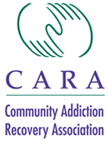 County and state governments cry over shortfalls these days but may be cutting some programs that actually save them money. Take Sacramento County Probation Department’s Adult Drug Court. To an outsider, the daily acupuncture, wholesome lunches, nutritional supplements, and stress reduction classes seem beside the point, but studies are beginning to suggest they’re doing something right.
County and state governments cry over shortfalls these days but may be cutting some programs that actually save them money. Take Sacramento County Probation Department’s Adult Drug Court. To an outsider, the daily acupuncture, wholesome lunches, nutritional supplements, and stress reduction classes seem beside the point, but studies are beginning to suggest they’re doing something right.
A State Administrative Office of the Courts (AOC) cost benefit analysis published in December 2008 followed the program’s graduates from 2004 and 2005 for two years and found that 83% of them stayed out of the criminal justice system during that time. Since it costs the Sheriff over $90 per day to house an offender in jail, the AOC figures Drug Court saved Sacramento County $20 million from its creation in 1995 through 2005.
“In a sea of despair, we offer an island of good news,” says Carolyn Reuben, LAc, Executive Director of Community Addiction Recovery Association (CARA), the subcontractor providing the most unique Drug Court programming in the state and maybe the nation. Her employees add value, she says, to the drug court model of counseling and brief incarceration which gives nonviolent criminals with drug problems the incentive to stay clean and sober.
What’s different in Sacramento is the emphasis on brain repair. “You can’t “just say no’ to addiction any more than you can to diabetes,” explains Reuben. “Both are biochemical deficiency diseases needing more of something the body is missing. With addiction what’s missing are chemicals in a person’s nervous system that regulate pain, depression, strong emotions, and feelings of wellbeing.”
“Everyone in the addiction treatment community knows the longer people stay in treatment the more likely they are to stay clean and sober,” she continues. “Those who succeed were born with enough feel good chemicals, and destroyed them by lifestyle choices. Once their brain returns to normal they can pay attention in counseling sessions. Those who try and fail and try and fail were born with deficiencies and have spent their life self-medicating in a vain attempt to feel normal.
At Drug Court we give them the raw materials they need in the form of acupuncture, self-administered acupressure, nutritional supplements, and nourishing food to build more feel-good neurochemicals than they ever had before. The results are quick and instead of a pharmaceutical bandaid, actually cure the core reason for their addiction.”
It isn’t your usual treatment program, but even Jan Scully, Sacramento County’s District Attorney weighs in with a positive word for CARA’s Model of Brain Repair which, according to Scully, “has helped countless drug court clients recover from addiction and leave behind the life of crime they led to support the habit.”
Reuben hopes to educate other professionals and the public about using nutrition and acupuncture for addictive and mental health disorders by co-sponsoring a conference with the State of California Department of Alcohol and Drug Programs (ADP). It’s called Brain Repair for Addictive Disorders: Cost-Effective, Successful, Drug-Free Therapies and is April 17-19. 2009 at the Hilton Arden West in Sacramento. Interested persons can learn more and register at www.carainstitute.org, where research and suggested reading is also available.
If a nourishing meal, nutritional supplements, and a happy squeeze of one’s ears can change the face of addiction and mental health treatment as she claims, the CARA Model of Brain Repair may end up being the next best thing to sliced (whole wheat) bread.
More information about how you can overcome your drug addiction >> Alternative Drug Recovery Program
0 responses so far ↓
There are no comments yet...Kick things off by filling out the form below.
Leave a Comment